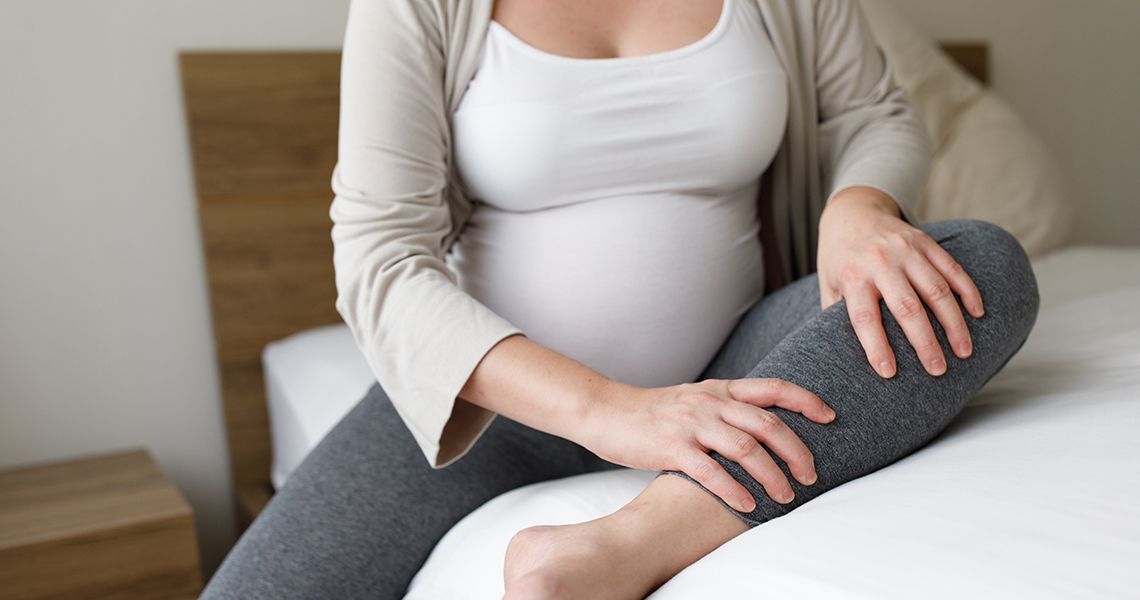
Common 1st Trimester Symptoms
- Nausea. Nausea can occur at any time of day and may come in the form of aversion to certain foods. It generally improves by the 13th or 14th week of pregnancy, but can continue into the 2nd trimester.
TIPS: Have a few crackers before getting up in the morning, eat several small meals a day so that your stomach is never empty, drink plenty of liquids. Try wearing a motion sickness band. Have gingerale or ginger tea, tablets or capsules. Try peppermint oil aromatherapy, flat coke or mixing 1 teaspoon of apple cider vinegar with 1 cup of water could also help.
- Dizziness. Pregnancy causes dilation of blood vessels, resulting in lower blood pressure, which may cause dizziness. Dizziness may also be caused by dehydration, low blood sugar or anemia. We will do lab work to rule out these conditions.
TIPS: Get up slowly from lying or sitting down, walk at a slower pace, avoid prolonged standing, guard against over-heating (hot tubs,saunas), stay physically active, drink plenty of fluids, eat iron-rich foods (beans, red meat, green leafy vegetables, dried fruits).
- Constipation. Constipation affects at least half of all pregnant people and is caused by an increase in progesterone, which slows the digestive process.
TIPS: Try to eat on a regular schedule, drink plenty of fluids, get some exercise daily. Eat high-fiber fruits such as prunes, bran cereal, vegetables and grains. Try fiber supplements (Metamucil, Citrucel) or a mild laxative (such as milk of magnesia).
- Vaginal Discharge and Vaginal Infections. An increase in vaginal discharge is common in pregnancy due to increase in the turnover of vaginal lining cells and thickened cervical mucous. It will likely be present throughout the pregnancy. Please notify your provider or a member of your care team if the discharge develops an odor, becomes discolored or is irritating. Also, please call if you have pain with urination.
- Headaches. Headaches are one of the most common discomforts experienced during pregnancy. During the first trimester your body experiences a surge of hormones and an increase in blood volume. Stress, low blood sugar, lack of sleep, dehydration, or caffeine withdrawal may also cause headaches.
TIPS: Apply a cool compress to the base of your neck or forehead; maintain your blood sugar by eating smaller, more frequent meals; get plenty of sleep; rest in a dark room; have a small amount of caffeine; take acetaminophen (avoid ibuprofen).
- Heartburn. Heartburn may be an effect of sluggish digestion or the expansion of the uterus.
TIPS: Eat several small meals a day instead of three large ones, avoid triggers (fried foods, chocolate, peppermint, garlic, onion, citrus, ginger), drink plenty of fluids, and don’t lay down for 1 to 2 hours after your evening meal. Antacids can be taken as needed (Tums, Mylanta, Maalox) or daily (cimetidine or famotidine) for relief.
- Fatigue. Fatigue may be caused by demands on the circulatory system and increased progesterone, which makes you sleepy.
TIPS: Take naps during the day or go to sleep earlier, avoid taking on extra responsibilities, ask for support when you need it, exercise regularly, eat foods rich in iron and protein, avoid excess caffeine.
If you’re concerned about any of these symptoms or any other side effects, please call your provider or care team.
Common 2nd and 3rd Trimester Symptoms
- Braxton Hicks contractions. Braxton Hicks contractions are painless, random contractions of the lower abdomen and groin - often may feel like a tightening of the uterus. These are “warm-ups” to labor contractions and may occur during the 2nd and 3rd trimester. On the other hand, if you experience regular contractions (more than 3-4 in one hour), try to lay down and drink fluids, and call if they do not decrease or resolve with these measures.
- Leg cramps. Leg cramps may occur especially at night and usually in the calves. Flex your toes up towards your leg if this happens and massage the calf until it resolves. Avoid pointing your toes when stretching.
- Heartburn and Constipation. Please see 1st trimester symptoms.
- Shortness of Breath. Shortness of breath may be due to your lungs processing more air than they did before pregnancy. Please call if you experience chest pain, especially if it is localized to one side or the other.
- Round Ligament Pain. The round ligaments support your uterus in your pelvis. As your uterus grows, the ligaments stretch and thicken to accommodate and support it. These changes can cause pain on one or both sides of the pelvis. Pain may start deep within the groin and move upward and outward towards the hips. It may also present as a dull ache after an active day. To help relieve discomfort, you may try warm baths, flexing your knees toward your abdomen, or lying on your side with a pillow under your belly. Decrease activity if necessary.
- Hip Pain and Backaches. As pregnancy advances, the baby gains weight and puts more pressure on your back, while hormones relax the joints between your pelvic bones. Sit in chairs with good back support, apply heat and/or ice to painful areas, wear supportive shoes. Call if the pain does not go away or is accompanied by other symptoms
- Swelling. Blood return from your veins is compromised during pregnancy and fluid retention may be evident in your feet, ankles, face, and hands. Drink plenty of fluids and elevate your feet at night.
- Frequent Urination. Extra pressure on your bladder may cause you to urinate more often or leak urine, especially with laughing, coughing, or sneezing. Watch for signs of a bladder infection, such as burning with urination, fever, or blood in your urine, and call if these symptoms are present.
If you’re concerned about any of these symptoms or any other side effects, please call your provider or care team.
